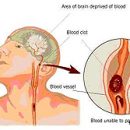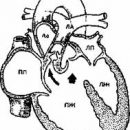Epilepsy is one of the most common impaired brain. It is currently good to treat, but problems remain, and they are associated, first of all, with a distorted idea of this ailment, both in the patient himself and in his relatives and all society. Epilepsy in matters and answers.
Content
Voros number1. Causes epilepsy mental problems?
Epilepsy does not apply to the diseases of the psyche. People with epilepsy, indeed, there may be mental problems, but they, as a rule, are a consequence of concomitant brain diseases (brain atrophy, tumor), or caused by the side effect of anti-epileptic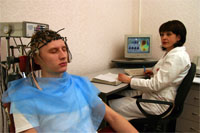 their drugs or difficult social issues.
their drugs or difficult social issues.
Among the existing mental problems, people with epilepsy predominate the reduction of intelligence and violation of behavior. Unfortunately, sometimes from the surrounding patients you have to experience alienation, mockery, which further aggravates their condition.
Question # 2. Do you need to notify friends and colleagues about your illness?
Many have concerns that familiar, learning about epilepsy, change their attitude towards you or your child. This, of course, sometimes happens, but to tell about the disease is necessary so that loved ones or friends can provide the necessary assistance in the case of an attack.
At work, it is necessary to inform the management only if the attacks may prevent work or cause an emergency with a threat to life. School teacher also desirable to announce the attacks, if there is a possibility of their appearance at school.
Question number 3. Can the patient do without care of loved ones?
When those surrounding (close, doctor, guardians) will be able to be sure that the patient is not trying to remove from society, and is ready to answer for himself to the extent that they are able to provide him with full independence and stop custody.
Acceptance of help from loved ones who want to relieve a sick life, making something or making decisions for it, is a trap. The patient gets used to such a position of things and will continue to pay for this loss of own activity, independence and ability to be responsible.
Therefore, it is necessary to gradually accustom to the patient to independently take pills, control the planned visits to the doctor and, as far as possible, be to the doctor without accompanying. These rules are not universal, so everyone should decide in which area it can and wants to be independent. If there are still doubts about this account, it is better to consult about it with your doctor.
Question number 4. As far as epilepsy can limit independence?
Whether a person will achieve an epilepsy independence in life or will lose it, depends not only from the severity of the disease and success in treatment, and mostly from its self-control, the resistance of the spirit and self-confidence.
With frequent attacks, close from fear before injuries will limit its movement and try to avoid additional risk factors, such as cycling or swimming. Concerns are based on fear that there will be no one to help if the attack suddenly happens. Of these concerns, often an exaggerated desire for a constant presence near the patient.
Such concerns will help dispel the fact that most people are not exposed to injuries during attacks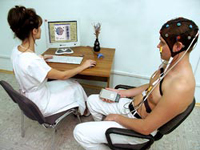 AM. In any case, it is necessary to initially carefully evaluate what is actually the real benefit from the patient's permanent guardianship, will it subsequently will not be harmful than the benefit.
AM. In any case, it is necessary to initially carefully evaluate what is actually the real benefit from the patient's permanent guardianship, will it subsequently will not be harmful than the benefit.
Low enough likelihood that the test of the attack will be able to prevent an accident. Often he does not have enough strength to catch or retain a person at the time of the attack.
The most important, rather than individual care, is that society, if possible, was the most informed about the existence of people with such a non-depth. It would help people be more merciful and skillful in providing first aid to the patient.
The negative side of the closer care is that the feeling of constant supervision, the presence of another person reduces a sense of responsibility for their actions, the degree of independence in decision-making and their correct assessment. Own experience, even wrong, strengthens sense of self-confidence.
Therefore, it is necessary to find a reasonable compromise between the fear of the unwanted consequences of attacks and certain freedom. Optimal relationships with patients in which his own activity and independence is encouraged. It is extremely necessary to do this in order to be in difficult periods of life, he would not have to experience feelings of helplessness and cut-off from the environment.
The above recommendations are applicable to any patient, but in each case it follows in a conversation with a doctor to determine the degree of certain restrictions.
Question number 5. Is a man with epilepsy disabled?
No doubt epileptic attacks – This is a fairly serious test in the life of a person. Here, as describes its attitude to epilepsy, one patient:
«I would like to push my illness, get to run, as a nightmare appearing from time to time. I believe that in this way I try to get rid of fear of the disease, before a different life, before my own inferiority, I just don't want to reconcile with the fact that I am sick epilepsy. I think that now I can confess myself in my illness, and it is very important, because, refusing, without taking for yourself the fact that I am sick, I, thus, I refuse the particle of my «I». Now, when I stopped playing in «Hypersca» Himself with me, must admit that I take a reasonable attitude towards my own illness and to my surrounding, not overestimating, but not ingraing his weight. What, actually makes me «defective»? It seems to me that in this society «defective» All people who do not fit into life with a stamp «normal».
Here is the example of the saying of a person with epilepsy about his place in life. As far as a person is able to feel like a personality depends, of course, not only from him, but also from the reaction to his illness of others – Friends, acquaintances, colleagues. Although, on the other hand, why not recognize yourself with disabilities and do not replenish the ranks of defective? Reply to these questions, constantly exciting people with epilepsy, can only he himself.
Question number 6. Do people with epilepsy are inherent in special character traits?
Usually, people with epilepsy attribute certain traits – Slowness, viscosity, scrupulousness, petty, infractiveness and straightness. Someone believes that they are very frivolous, are inconsistently, scattered and irresponsible. All this - unacceptable generalizations. There is no evidence that these features are manifested only in epilepsy.
Therefore, it is impossible to say that epilepsy contributes to the formation of any characteristics of character. Although it should be noted that long-term treatment with some antiepileptic preparations (phenobarbital, prison) has a certain effect on the temperament of a person, as a result of which its reactions slow down, the concentration of attention and memory is disturbed. The absolute majority of people with epilepsy do not have any noticeable character differences.
Question number 7. Is the statement that patients with epilepsive are aggressive?
People with epilepsy are capable of aggression to the same extent as others, although sometimes they are peculiar to increased irritability. But after all, we are not at least we meet people without epilepsy and at the same time sufficiently blowing.
It is quite clear that for people with epilepsy in their difficult life situation, with sometimes quite scanty public contacts, loneliness, restrictions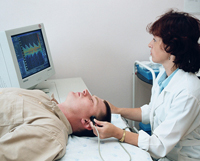 Mi, and often with a deep offense to prejudice and ignorance around it is permissible and even justified that they can be irritable, and sometimes angry with the whole world.
Mi, and often with a deep offense to prejudice and ignorance around it is permissible and even justified that they can be irritable, and sometimes angry with the whole world.
Question number 8. Can psychogenic attacks arise?
In difficult-to-treat cases where even high doses of drugs are ineffective, about 10% of patients may occur psychogenic reactions in the form of pseudoepileptic attacks. Such attacks are not always easy to distinguish from epileptic, sometimes long-term observation in hospital conditions.
However, the manifestations of psychogenic seizures differ from epileptic. As a rule, psychogenic reactions occur in the presence of anyone, and during an attack with patients you can contact. The duration of a psychogenic reaction is usually greater than the epileptic attack. At the end of the attack, the patient is absolutely calm, consciousness is not disturbed.
As a rule, such patients are distinguished by extreme caution and the inclination is easy to fall into panic. Honestly, the reasons for the coherence of psychogenic reactions with epileptic attacks should not be explained. Each specific case is necessary to explore in detail together with a psychiatrist.
Often psychogenic reactions have some meaning for a patient to decipher, which is a rather complicated task. It is not always decided to solve it even in cases of close cooperation of the patient's family and a doctor. Sometimes psychogenic attacks arise when the patient feels indifference to their person to their person or wants to attract the attention of someone from loved ones to solve the problem with which he cannot cope with himself.
Question number 9. As interconnected epilepsy with sex life?
Sexual behavior - important, but very personal part of life for most men and women. Studies have shown that about a third of people with epilepsy, regardless of the floor, sexual problems are detected. The main causes of sexual disorders are psychosocial and physiological factors.
Psychosocial factors:
- limited social activity;
- insufficient self-esteem;
- rejection one of the facts of the fact of the presence of epilepsy in the other.
Psychosocial factors invariably cause sexual dysfunction with various chronic diseases, they are the cause of sexual problems in epilepsy. The presence of attacks often leads to a sense of vulnerability, helplessness, inferiority and prevents the establishment of normal relations with the sexual partner. In addition, many fear that their sexual activity can provoke attacks, especially in cases where the attacks are caused by hyperventilation or physical activity.
Even such forms of epilepsy are known when sexual sensations protrude the component of the epileptic attack and as a result form a negative attitude to any manifestations of sexual visits.
Physiological factors:
- violation of the function of the structures of the brain responsible for sexual behavior;
- change of hormonal background due to attacks;
- an increase in the level of brazing in the brain;
- Reducing the level of genital hormones due to reception of drugs.
The decrease in sexual entry is noted about 10% of people receiving antiepileptic drugs, and to a greater extent it is expressed in those who take barbiturates. Quite a rare case with epilepsy is increased sexual activity, which is an equally serious problem.
When evaluating sexual disorders, it is necessary to take into account that they may also be the result of incorrect education, religious restrictions and negative experience in early sex life, but the most common cause – This is a violation of relationships with sexual partner.
Question number 10. How does the speculation and prejudice arise around epilepsy?
Attitude towards epilepsy changed in different periods of history. In ancient times, epilepsy was considered as a disease that was sent to the ground with gods or demons, because, with some types of attacks, the patient falls on earth, as affected by lightning. To date, there is also an erroneous view of the epilepsy as a mental illness.
It does not take into account the fact that the reduction of intelligence or mental inferiority, if they have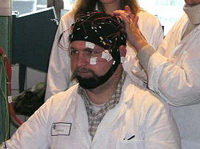 The place is usually caused by the main disease of the brain, and not the epilepsy itself. For the most part, people with epilepsy have a normal level of intelligence, and sometimes quite high.
The place is usually caused by the main disease of the brain, and not the epilepsy itself. For the most part, people with epilepsy have a normal level of intelligence, and sometimes quite high.
It should be borne in mind that a person with epilepsy from a philistical point of view does not meet public standards. He can have professional opportunities, he constantly pursues the feeling that he is too burdens for others. During an attack, the kind of patient will not call pleasant, what he knows about, and that in turn causes him the very feeling of helplessness and humiliation.
For a long time, epilepsy is associated with a sense of hopelessness that occurs only with one form of a convulsive attack. Poaming saliva, wide open eyes, pale or messed man's face, who also fell into the dirt and broke clothes – Here is an image, many people associated with epilepsy. If, in addition to everything, during an attack, a person looks like a dead, it inspires the surviving fear and disgust. Although the same person during periods between the attacks is absolutely normal, and no one is guessing his ailment.
Which of the listed factors play a more significant role in the formation of a negative image of epilepsy in others, it is difficult to judge, but each person with epilepsy has to face in life with the manifestation of these prejudices and learn to overcome them.
Read continuation

